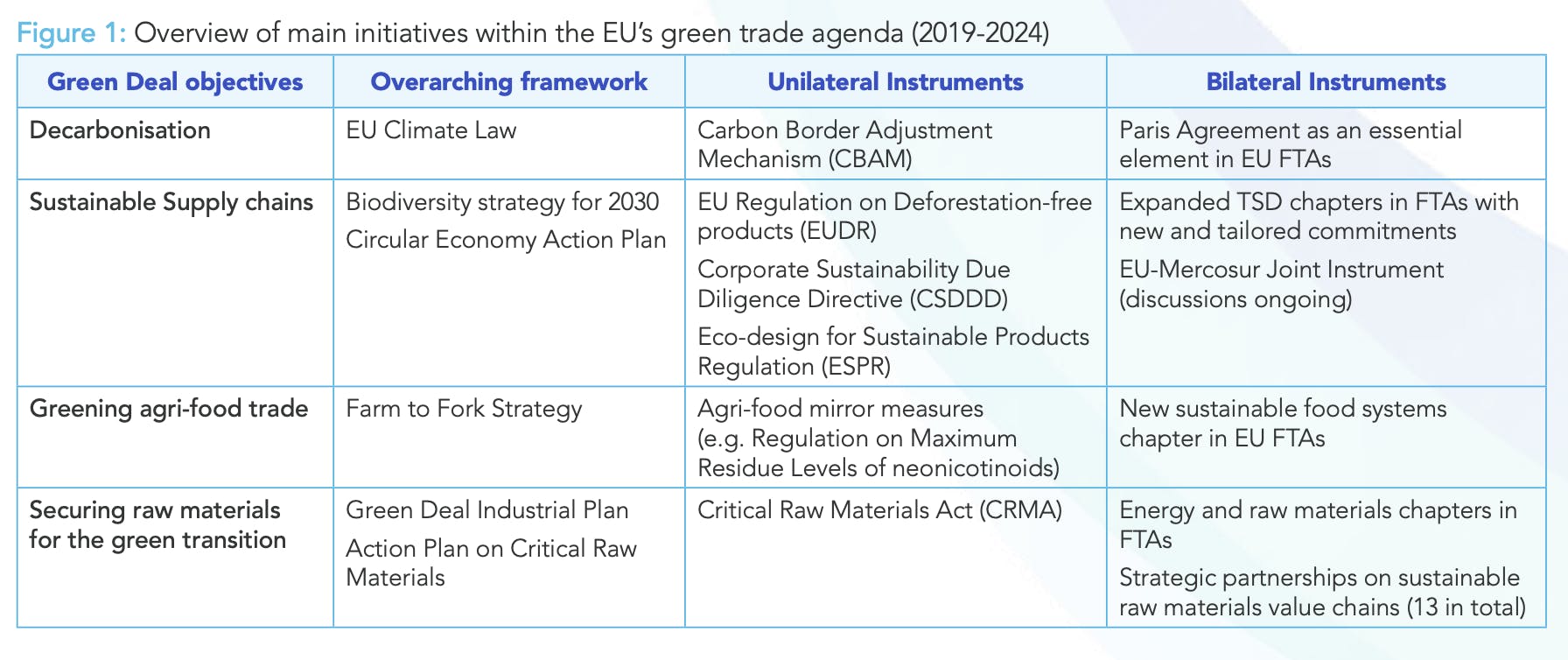From rhetoric to action: Taking stock of the green trade agenda of von der Leyen’s “geopolitical” Commission
To deliver on the European Green Deal, Ursula von der Leyen’s “geopolitical” Commission mobilised the EU’s trade policy as a lever for climate action. Looking back at the 2019-2024 cycle, this paper evaluates how the European Commission aligned trade with environmental goals, focusing on four areas: i) decarbonising imports and mitigation efforts; ii) sustainable supply chains; iii) greening EU agri-food trade; and iv) securing raw materials.

The analysis reveals that the Commission initiated and adopted more autonomous measures and concluded fewer Free Trade Agreements (FTAs) than in past mandates. While most proposed legislative files were successfully adopted, some gaps remain between the level of ambition and the outcomes achieved, especially on agri-food policy. The adoption of a revised approach to sustainable development in FTAs stands out as a highlight, although its practical effectiveness is yet to be proven. Thus far, only one FTA – the one with New Zealand – has fully incorporated this new approach, and ongoing negotiations for other trade deals, such as those with India and Australia, present challenges. Sectoral cooperation frameworks, such as Strategic Partnerships on Raw Materials, are promising, but lack binding commitments and assurances on Environment, Social and Governance criteria (ESG).
The primary task for the incoming Commission will therefore be to stand by the green trade agenda, ensure its adequate implementation, and resist pressures to backtrack, demonstrating that the green transition, both within Europe and globally, is fundamental to European competitiveness. To do so, this paper highlights key trends and offers 5 policy recommendations on how to implement and improve the EU's green trade agenda in the new EU cycle.
1- Ensuring the effective implementation of autonomous measures by increasing resources for monitoring and enforcement at both member state and Commission level, and streamlining reporting processes;
2- Addressing existing gaps in aligning standards for agri-food trade with sustainability objectives;
3- Improving sustainability impact assessments and step up and fine-tune technical and financial assistance especially to developing countries and LDCs disproportionally impacted by the EU’s autonomous measures;
4 - Ensuring coherence and complementarity between policy instruments, namely autonomous measures and free trade agreements
5 - Seeking tangible, binding sustainability commitments when cooperating with partner countries on raw materials and ensuring that such partnerships are mutually beneficial.





